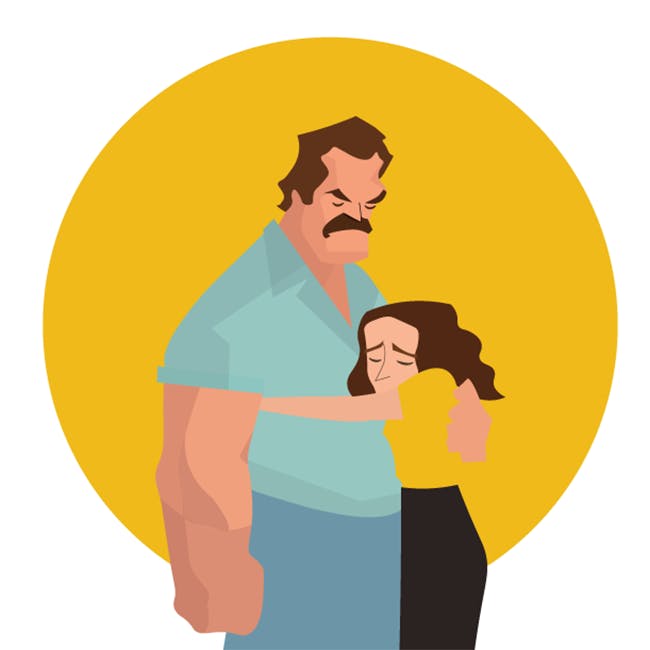
What to Say When Someone Dies
Being supportive when you're not the primary griever

When a close friend’s mother died a few years ago, I found myself frozen. After sending my initial condolences, I would open up blank emails and stare at the screen, waiting for the perfect words to materialize, or think “today is the day I’m going to call and see how she’s doing,” but fear of saying the wrong thing stopped me from dialing.
As challenging as grieving can be, the challenge of supporting someone who is grieving can be just as daunting, but experts—and people who have been there—can offer some valuable advice.
When it comes to what to say, keep it simple. “I’m sorry for your loss,” “I’m thinking of you and your family,” and “You are in my thoughts” are all short and to the point, and the fact that they are common phrases doesn’t take away from their intent. There’s no need to be verbose or original, especially in the immediate aftermath of a death, and in fact, it can be kinder to recognize that the last thing many people dealing with a loss (and planning a service, and managing an estate, and tying up all sorts of loose ends) want to do is spend a lot of time accepting condolences, especially if you’re not a close friend or family member.
“Sharing a fond memory of that individual can be very heartwarming, says etiquette coach and lifestyle expert Elaine Swann. But if you don't have something very specific to say, then keep it simple and just let them know that you're offering your condolences.”
If you are especially close, or in a position to be specifically helpful (like a neighbor or a coworker), New York City-based family grief counselor Jill Cohen says that the key is to be as specific as possible when offering help. “It’s not ‘what can I do,’” she says, it’s “I’m coming Friday night with pizza. What time do you guys eat? It's 2:00 on Wednesday, I can pick up your kids at school.” People who are grieving are often overwhelmed with both emotion and logistics, and anything you can do to ease the latter burden will almost always be welcome.
It’s also important to think about your own grief and grief history when supporting someone else. At a recent funeral for my partner’s aunt, I expressed anxiety that my own sadness about my father’s death several years ago would resurface—that just being in a funeral home would trigger memories of my own experience. Talking through that fear with a close friend and a professional allowed me to feel confident about supporting my partner and his family through their loss. Many people, say Cohen, might eventually want to talk about their loved one’s dying moments—“what they were doing when they got the call, or even what they were wearing, or specifics about what was happening in the hospital—and it’s a good idea to be prepared for that.
Another part of supporting someone else through the grieving process is remembering that their sadness and stress don’t stop once the funeral is over. Cohen suggests telling grieving friends you’ll call them on a certain date (say, a week after the funeral) and sticking to it. This is also, she says, a good time to offer to simply be there: “You know, we don't have to watch TV or eat out. I'll just sit with you,” she recommends saying. “I'll bring a book, or we can watch Netflix, whatever. So often, they just want people to be there.” During my own grieving process, I was especially grateful for friends who reached out on days they thought might be challenging—Father’s Day, my dad’s birthday, and my own birthday were all particularly hard that first year. Hearing someone say “I know Christmas is probably different for you now and I’m here to talk if you want” reminded me that no one expected me to be “done” with grieving just because time had passed.
Both Cohen and Swann caution against telling a friend you know what they’re going through. Even if you’ve dealt with loss of your own, each person grieves in their own way, and it can feel stifling to have someone else’s experience imposed on you. Instead, Cohen suggests, go with something like “‘I cannot even imagine how it must be for you, or how you might be feeling,’ because you can’t! Because everyone feels things differently.”
“Attending to the fact that people grieve in different ways, on different time schedules,” says Cohen, is the key to supporting a friend during a loss. What worked for you might not work for them, and that’s OK—it’s not your job to come up with solutions to every problem. Instead, focus on showing up, offering what you can, and demonstrating to your friend that they have your support.
